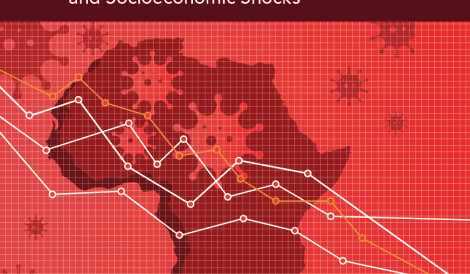Prof. Evans Osabuohien
- Posted on
- No Comments
The inception workshop on Value Chain Development, Trade, and Economic Transformation in Africa: Phase II, held on the 8th and 9th of May, 2023, was organised by the African. Economic Research Consortium (AERC), under its Collaborative Research Programme, was a huge success.
According to AERC’s Executive Director (Theophile Azomahou), out of over 50 quality proposal applications from scholars across the African continent, only 12 were accepted. It is worth noting that the research project led by Prof Evans Osabuohien was among the 12 selected projects, which is titled “Global Value Chain Participation of Firms in SSA: Insights from Ghana, Kenya, and Nigeria” (with Alhassan Karakara & Oluwatosin Edafe as team members). Their project focuses on the Global Value Chain (GVC) participation of firms in sub-Saharan Africa (SSA), and the drivers and obstacles that impede the involvement in GVC. It also seeks to assess the participation in GVC and finally identify the mediating role played by institutions in firms’ GVC participation.
The preliminary results of their research project show that firms located in Tema, Ghana have 15.6% increases in the likelihood of having IRQC than other firms. In Kenya, firms located in Nairobi have a 56% chance of obtaining IRQC than their counterpart firms operating elsewhere. The legal status of firms shows that firms that are shareholding either with traded or non-traded shares have more likelihood of obtaining IRQC than sole proprietor firms, which was 12.4% Ghana, Kenya (9.1%) and Nigeria (13.2%). Firms that do not face competition are less likely to obtain IRQC and subsequently engage in GVC, though competition is not a significant determinant of obtaining IRQC. Medium-scale or large-scale firms are more likely to have IRQC than small-scale firms, which is significant for the three countries. Managerial experience is significant in influencing the likelihood of obtaining IRQC. In effect, a year increase in the experience of top managers leads to a 1% increase in the likelihood of obtaining IRQC among Ghanaian firms.
Furthermore, their results showed that Tema-located firms have an increase (10.3%) in the probability of exporting directly compared to firms located in Accra, Takoradi or North (Kumasi and Tamale). In Kenya, Nairobi-based firms are more likely to export directly than firms in other parts of the country. Also, firms in Tema are less likely (about a 14% decrease) to export indirectly. In the case of Nairobi-based firms in Kenya, they have a 65% reduction in the likelihood of exporting indirectly compared to other firms.
In the three countries, shareholding companies (traded or not) and partnership firms have increased probabilities of directly exporting compared to sole proprietor firms. These increase probabilities are more pronounced among firms in Nigeria (46.6%) than in Ghana (7.6%) & Kenya (12.2%). Shareholding firms with traded shares are less likely to export indirectly by 3.3% for Kenyan firms, Ghana (39%), and Nigeria (22.3%). Also, medium and large-scale firms have increased in probabilities of exporting directly or indirectly than small-scale firms.
Their presentation was concluded by suggesting that policies on stimulating firm GVC participation could focus on medium and large-scale firms in the short run. Still, policies supporting small-scale firms to expand could, in the long run, help such firms participate in GVC. Policies to enhance firms’ GVC participation should ensure that support includes upgrading firms to become shareholding firms (with traded shares preferred) or partnership firms.






